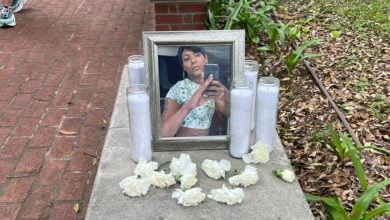When University of Missouri defensive end Michael Sam came out as gay to the New York Times Feb. 9, media reports put a racialized spin on bias. It’s an old story—that the NFL’s African-American athletes are largely opposed to gay players, and homosexuality in general—when in truth it’s the bosses and owners fretting over a conservative backlash.
Sam, the SEC defensive player of the year headed to the NFL draft in May, is projected to be selected in the third to fifth rounds of the upcoming lottery. Last year, he told fellow players on his college team that he is gay, and received widespread support. His nationally publicized coming out has generated much debate, mostly centered around whether the NFL can accept a gay player.
Sports journalist Frank Schwab reported that day-of reactions from players and former players was largely positive. NFL legend Deion Sanders tweeted, “Michael Sam isn’t the first gay player in the NFL, but he’s the first to come out. Let’s show him love like a family member.”
Sanders’ sentiments were shared by many active players. Carolina Panthers’ running back DeAngelo Williams tweeted that Sam’s sexual orientation meant nothing to him. “I care about winning games and being respectful in the locker room,” he wrote.
The opposite opinion seems strongly skewed to being that of NFL executives and coaches. Sports Illustrated published a widely circulated article on Sam’s coming out, quoting eight anonymous administrators who blamed players for prejudice, claiming everything from tensions in the locker room to “chemically imbalanc[ing]” a team. While these homophobic administrators chose to remain anonymous, many NFL players publicly showed their solidarity with Sam on social media.
Most assuredly, a gay player will draw attention. But it is unclear when the NFL became media shy and did not clamor for attention for its players, league and ticket sales. Rather, it’s obvious that executives are concerned about what the anti-gay right wing could do. “It won’t be because the locker room won’t accept him,” former Indianapolis Colts’ quarterback Shaun King posted on Twitter. “It will be to avoid the circus.”
For players, there’s no advantage to being hostile to Sam. The country’s attitudes are changing, and bias is seen as unacceptable, thus putting any athlete’s sponsorships, fan base and residual earnings at risk over outbursts on such matters. Yet instead of forthrightness from the NFL about the conservative companies and interest groups Sam’s addition might offend, so much of this discussion subtly plays on racism directed at African-Americans.
Black men comprise almost 70 percent of the league’s players. The view that people of color and those of African descent are more homophobic than whites is a timeworn, racist cliché that gets trotted out regularly. In the case of Michael Sam, the league seems content to let the athletes, those workers on whose efforts the NFL has built billions in assets, take the fall.
To be clear, the NFL has faced many controversies over homophobia in the last five years. As the advent of same-sex marriage, the end of Don’t Ask Don’t Tell and other cultural shifts impact society, surely athletes are among those with opinions. But USA Today noted in 2012 that African-American attitudes on homosexuality are shifting, and are seeing critical generational differences.
In a recent Washington Post-ABC survey, African-American support for same-sex marriage rose to 59 percent following President Barack Obama expressing his support for the right of lesbian, gay, bisexual and transgender people to marry. Nationally, acceptance of lesbians and gays is growing. NFL players are not responsible if the league does not accept Michael Sam. It’s wealthy conservative owners and bosses who are to blame for homophobia in professional football.





